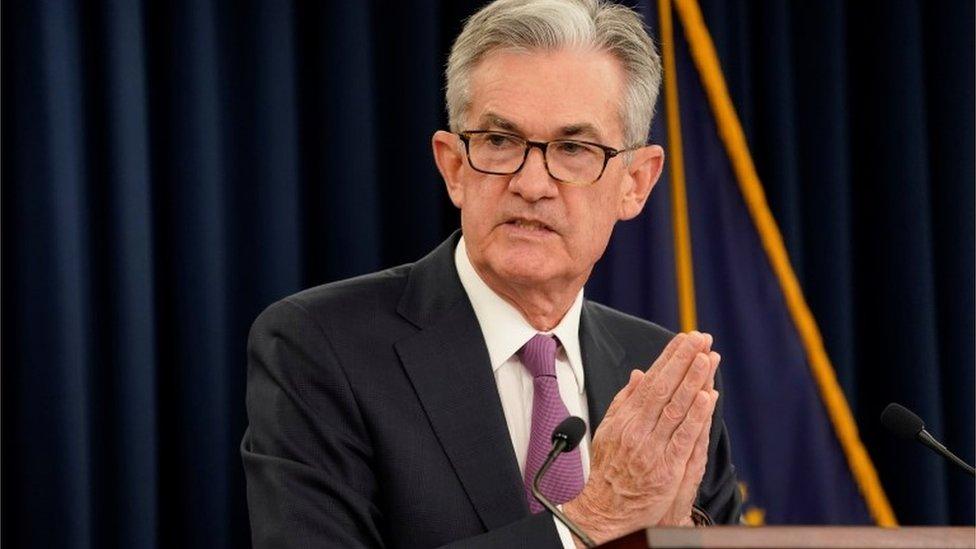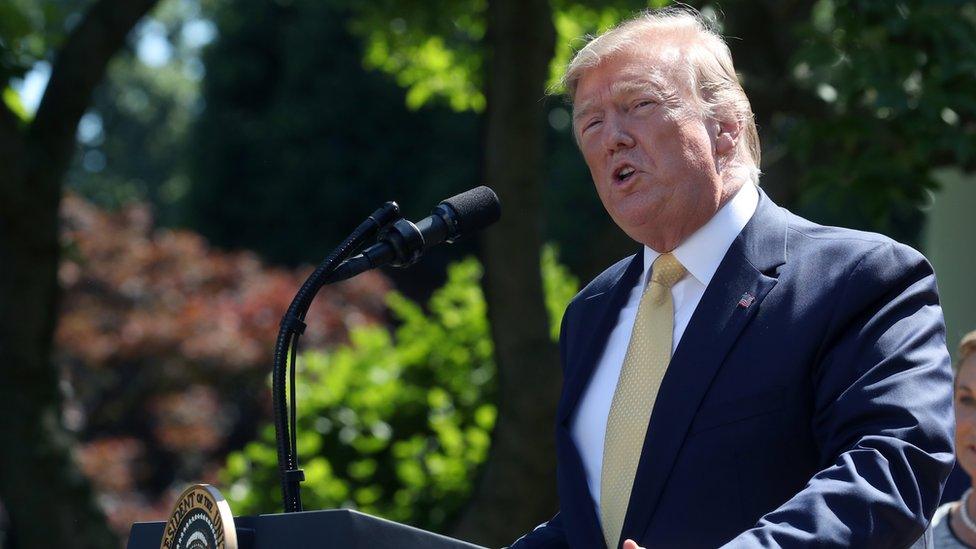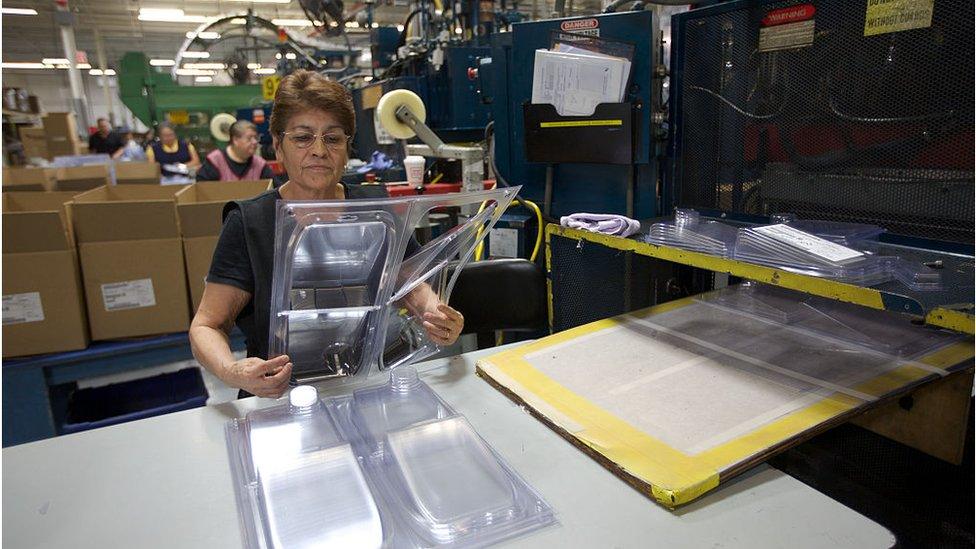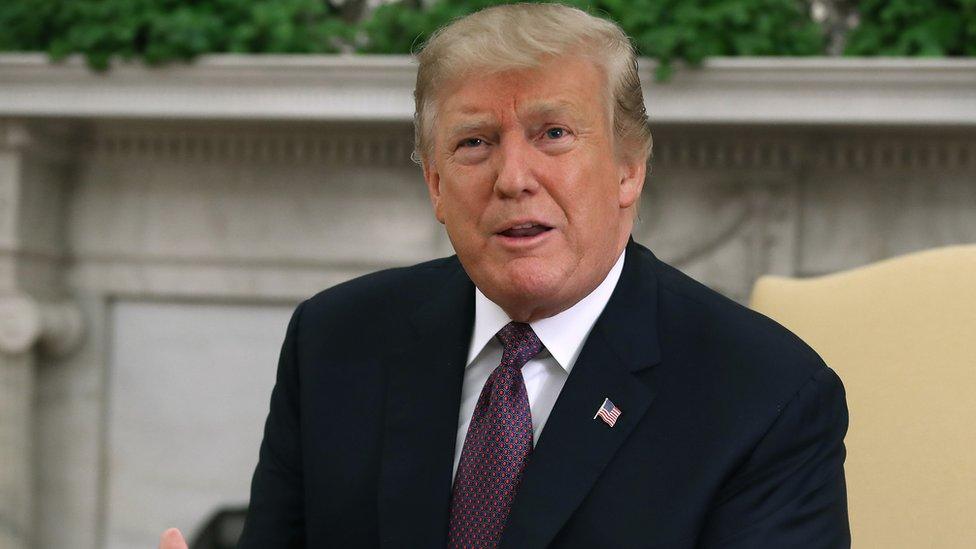US Fed opens door to interest rate cut after Trump criticism
- Published

The US central bank has opened the door to an interest rate cut, in a shift in guidance that follows criticism by President Donald Trump.
The Federal Reserve left rates on hold, but said uncertainties about the economic outlook could force its hand.
According to the vote, one Fed policymaker advocated an immediate cut, something the president has called for.
Officials have in recent weeks acknowledged that the trade war with China is darkening the outlook.
The policy-setting Federal Open Market Committee (FOMC) kept the key rate in the 2.25-2.5% range, but said "uncertainties about this outlook have increased" and the Fed "will act as appropriate to sustain the expansion."
The closely-watched Fed statement included a marked shift in language. No longer did the central bank say it would remain "patient" in assessing economic data.
"In light of these uncertainties and muted inflation pressures, the Committee will closely monitor the implications of incoming information for the economic outlook and will act as appropriate to sustain the expansion, with a strong labour market and inflation near its symmetric 2% objective," the FOMC statement said.
James Bullard, president of the Fed's St Louis regional branch, voted for a cut of 25 basis points.
The Fed's change in tone comes after the introduction of new tariffs on $200bn worth of Chinese imports and Mr Trump's threat to impose new taxes on Mexican goods.
Mr Trump says the stronger dollar is hurting US companies, and a rise in rates would only encourage foreign investors to buy the greenback and increase its strength further.
He has attacked the Fed and its chairman Jerome Powell on a number of occasions over the past year, putting pressure on them to keep interest rates low. And there have been reports that Mr Trump talked privately with advisers about firing him.

'Not without irony'
BBC economics correspondent Andrew Walker
The Fed did not cut rates, but such a move is now very clearly on the central bank's agenda. And it would be exactly what President Trump wants them to do.
There are some ironies in that. Launching his re-election campaign, Mr Trump called the US economy the "envy of the world".
But the reason that the Fed is gearing up to do what he thinks they should do is increased uncertainties about the outlook.
And one of the main factors in that is international trade.
The uncertainty in that area reflects the policies of the Trump administration: in particular, the possibility of an escalation in the conflict with China. Further increases in tariffs on Chinese goods are on the President's agenda.
That said, Fed officials might yet take some comfort from his tweet yesterday that he had had a good conversation with the Chinese President Xi Jinping.
Which raises another irony. If the two leaders do manage a deal on trade, it would take away one of the considerations leading the Fed to think about a rate cut.

Jon Augustine, chief investment officer at Huntington National Bank, said he was now expecting a rate cut in July "absent some big trade news or other news".
Nancy Curtin, chief investment officer at Close Brothers Asset Management, said that despite Mr Trump tweeting that trade tensions could be resolved soon, the Fed remains worried about the impact on growth.
She sees the possibility of two interest rate cuts this year. Anything else "will be seen as a disappointment," she said.
- Published19 June 2019

- Published7 June 2019

- Published15 May 2019
